Hillary Clinton Unplugged
Senator Clinton found time for a casual chat with Marie Claire's editor-in-chief, Joanna Coles, about motherhood, the juggle, abortion, celeb culture, and her ace-in-the-hole husband.
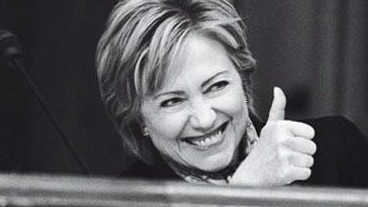
IT'S UNMISTAKABLE: From her buoyant campaign appearances to her feisty showing in the Democratic debates across the country, there's a markedly more polished, confident Hillary on the campaign trail than the occasionally tentative, defensive one who won a Senate seat in 2000. At a fund-raising breakfast for 500 in New York City last June, wearing a black pantsuit, a frosting-pink scarf, and a silver flower pin on her jacket, Clinton bounded to the stage like a motivational speaker, hugging supporters like Vera Wang and Billie Jean King along the way, flashing a smile that was both winning and fierce. Judging from her performance at the breakfast, it appeared she had learned plenty about playing the room — including the strategic use of self-deprecation and personal anecdote. Praising Title IX and the sports scholarships it has made possible for young women, she cracked, "Though I'm not sure how much good that particular provision [would have] done for me personally."
Several hours after the breakfast, Clinton repaired to the library on the 44th floor of the Hearst Tower while her Secret Service detail, personal aide, and scheduler waited outside. Then she took a seat on the cream-colored couch, crossed her legs neatly at the ankles, and gamely submitted to questions from Editor-in-Chief Joanna Coles.
Joanna Coles: The debate in New Hampshire last night, a fund-raising breakfast in New York today, back to DC by dinner — how do you keep your energy up? Why are your eyes so bright?
Hillary Clinton: The first lesson I've learned is that no matter what you do in your life, you have to figure out your own internal rhythms — I mean, what works for you doesn't necessarily work for your friend. I try to schedule at least one day a week to catch up, to feel like I'm breathing again. I take vitamins. I have a treadmill and weights at home, but I prefer walking outside, just kind of breathing and letting it all go. I try to read for pleasure whenever I can — it's a great way just to shut it off for a while so your brain doesn't get fried.
JC: What have you read lately?
HC: Doris Kearns Goodwin's book about President Lincoln, Team of Rivals, is a brilliant description of how Lincoln put together the Cabinet that operated during the Civil War by including people who had run against him. I loved Elizabeth Gilbert's book, Eat Pray Love, passed to me by a friend. And Acts of Faith, by Philip Caputo, about an assortment of people in the Sudan and all of the challenges they face trying to help the Sudanese people withstand the brutality of the government in Khartoum.
JC: If you were president, how would you deal with Darfur?
Get exclusive access to fashion and beauty trends, hot-off-the-press celebrity news, and more.
HC: I would have put on sanctions that were much tougher much earlier. I think we should consider a no-fly zone, because the Sudanese air force provides air cover and bombs a lot of the villages in conjunction with the Janjaweed raids on these villages. And then we've got to do more to build up the African Union presence and give the logistical support it needs.
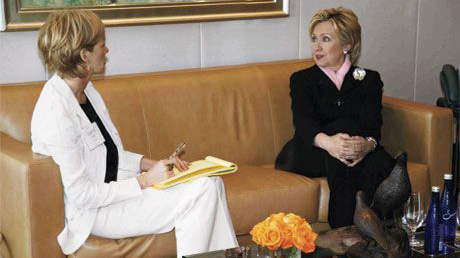
JC: Critics say that because you're a woman you've got to be doubly tough on the issue of war. Do you agree?
HC: No, I don't. I feel like I have to do what I believe is right. I don't think we need to have an either/or debate about the use of military force — I think you can be both tough and smart. And we haven't had that for the last six-and-a-half years. We are desperately in need of the kind of smart diplomacy that has worked for America in the past. If you use force, it should be a last resort. And it needs to be used with full understanding of the consequences. I bring the experience that I had in eight years in the White House where Bill did intervene in places like Bosnia and Kosovo but did it in a smart, effective way. George Bush — the first George Bush — also [was effective] in putting together a real coalition, not a pretend coalition.
JC: Do you get to see Chelsea very often?
HC: Oh yeah, sure. Yesterday we had an engagement party for her best friend and had lots of the kids they went to school with and their families over to our house. Then she stayed while I went off to do the debate, and she was there when I got back. Last week when I was in Iowa, she and my husband took my mother to the theater. We do a lot of things together.
JC: Take us back to when Chelsea was little and you were juggling motherhood and a career.
HC: Like every working mother, there's guilt involved in deciding how you're going to balance family and work. I tried to put as much time into taking care of Chelsea myself as I could. Bill and I alternated reading to her every night; we'd try to have a meal together every day, whether breakfast or dinner. Once a week, one of us would pick what we were going to do that night. We might go to a movie or go bowling or play tennis. I remember one time, Chelsea was about 3-and-a-half, and what she wanted to do was buy a coconut and crack it open, because she'd never seen that before. I think it's a false trade-off to say quality time versus quantity — you have to have both. So if you have long work hours like I did, how do you get rid of things in your life you don't need in order to put that extra time into your children?
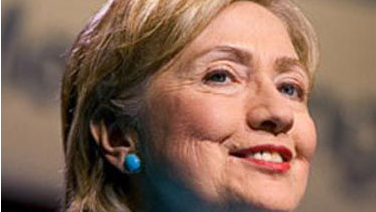
JC: What were the things that went?
HC: Going to dinner with friends — that was the casualty. For the early years of her life, which go by so fast, we just made the decision that we were going to cut back on all that. But let me say one thing — it is important that women support each other. Most of us will at some point get married and have children, and how you balance that really depends on the quality of your friends and whether your friends are there for you. It also depends on what the policies are in your workplace. I always supported the women I worked with having time off to go to parent-teacher conferences and doctors' appointments or bringing their infants into the office. I'm a huge supporter of on-site child care. You need much more sensitivity in the workplace to the challenges young women go through in trying to do two very difficult jobs well.
JC: Meanwhile, we've got Paris going to jail, we've got Britney having a public breakdown. How do we bring up our kids in a culture of tabloid heroines?
HC: Well, you have to fight against it, to be honest. Frankly, I see a lot of little girls dressed in ways I think are not very appropriate. It's too much too soon, and it causes a lot of cognitive dissonance about who they are — are they an 8-year-old, or are they a miniature fill-in-the-blank-celebrity? Parents have to draw the line. We used to make up chores for Chelsea to do. We lived in the Governor's Mansion, but she was expected to make her bed and clean up after herself — things you would do in any household. You have to inculcate those values; you can't assume that somehow they will be transmitted to your children. It's also important, particularly for privileged kids, to involve them in charitable activities. Bill and I give our two young nephews a certain amount of money every month, and out of that they have to contribute $25 to a charity. Then they have to write a letter telling us why they've contributed it. One week it's Save Darfur, and the next week it's Save the Whales. It's a way of raising consciousness for your kids so they don't get totally sucked into the materialism and celebrity culture.
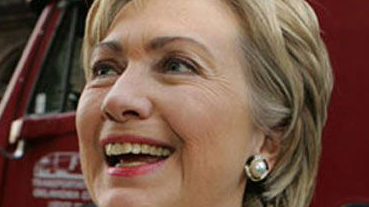
JC: Next subject: abortion. Some women feel that your language is becoming much more moderate on the issue. What do you say to reassure them?
HC: I've been saying the same thing for as long as I can remember: I believe abortion should be safe, legal, and rare. I do think women should have a choice but also that women should be making responsible decisions. I think people who have been pro-choice have basically gotten lazy about it. There will be a concerted effort by the Supreme Court to try to push as far as they possibly can [last spring, the court upheld a ban on so-called partial-birth abortions], and if they go all the way and either repeal or overturn Roe v. Wade, then it will become a political issue again in the legislatures of every state, and people will find themselves having to be politically active. When you're part of a group that cares deeply — as the anti-choice people do — you get organized, and you vote on that issue, whereas people who are pro-choice vote on a lot of different issues. I bet a lot of people among your readers voted for George W. Bush because they concluded that he was more likeable or whatever. But if [abortion rights] is the most important issue to any of your readers, then it has to become a voting issue.
JC: Do you have much contact with Al Gore?
HC: I see him every so often. He is doing an extraordinary job on the whole global-warming front and deserves an enormous amount of credit. I hope he gets the Nobel Peace Prize, which he's up for this fall, because he's really kept this issue on the front burner during the last six years, when Bush wanted it to be buried.
JC: Do you think he's going to run?
HC: I have no idea. You would have to ask him.
JC: When you first came to Washington, what surprised you most?
HC: I was surprised at how Washington responded when Bill asked me to work on health care. [The response] was so much more conservative than in Arkansas, where I had worked on it. Learning the difference between being the first lady of a state and the first lady of a country was a real experience.
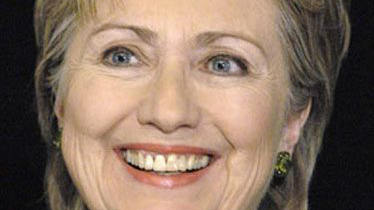
JC: It would be so interesting to see your husband in the first gentleman role . . .
HC: It's just not analogous at all. He is probably the most popular man in the world and has done tremendous work in the past years with his foundation and all of his Clinton Global Initiatives, and it's really timely because we're going to have to repair so many of our relations. I hope any Democratic president would ask him to play a major role as a global ambassador. I certainly will.
JC: Is he as much fun as he seems?
HC: [Laughs] He is. He's a lot of fun. He's just the most interesting person to talk to that you'll ever meet.
JC: When you first became senator, it was interesting to watch the Jesse Helmses of the world suddenly cozying up to you. Did you take it with a grain of salt?
HC: As a young lawyer, I learned to try to find common ground with people, to look for a human connection. When I got to the Senate, despite the fact that there were a lot of people who didn't want me to get there — and were sure they'd never even talk to me, let alone work with me — I really tried to do the job I was sent there to do by the people of New York, which was to get things done for my constituents. I worked with Republicans, and we found a lot of common ground. It isn't easy, but it's part of what we have to do in politics today. People tell me they just want to see something happen that is positive for them in their lives. I mean, if you're struggling to pay your student-loan debts, or if you've got a kid trying to go to college and don't think you're going to be able to afford it, it really matters whether you get help or not. If you don't have health care or you have insurance but the insurance company won't pay for what your doctor says you need, then what's the point of people arguing in Washington? Why don't you give me some help to fix this problem? I will work with anybody if I think we can actually produce results for people.